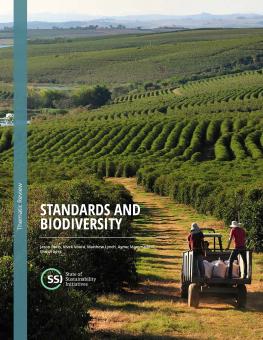
Standards and Biodiversity
The Standards and Biodiversity Report analyzes the criteria and market coverage of 15 major agricultural voluntary sustainability standards against key biodiversity parameters.
The Standards and Biodiversity Report analyzes the relationship between biodiversity and 15 voluntary sustainability standards.
The report is the first to apply the Biodiversity Impact Indicators for Commodity Production (BIICP) developed under the guidance of the Convention on Biological Diversity, analyzing criteria coverage across the BIICP and distribution of compliance across key markets and biodiversity parameters.
You might also be interested in
CSDDD: EU's Due diligence law vote should drive supply chain sustainability efforts
The European Parliament has voted to adopt the Corporate Sustainability Due Diligence Directive, aiming to address the environmental and social impacts of the supply chains of Europe's large corporations.
Will the Inclusion of Voluntary Standards in Trade Agreements Lead to More Sustainable Trade?
The use of voluntary sustainability standards (VSSs) and similar systems in free trade agreements (FTAs) is gaining traction. Will it lead to more sustainable production and consumption globally?
Global Market Report: Soybean prices and sustainability
Less than 3% of soybeans are produced in compliance with sustainability standards. This report unpacks what needs to change to make soybeans a food that protects rather than harms the natural environment.
Urgent Action Is Needed to Better Reward Tea Farmers for Using Sustainable Practices
There are 13 million people propping up the global tea industry. Two thirds of those people are smallholder farmers in developing countries, many of whom live in poverty. New research from the International Institute for Sustainable Development unearths the latest consumption and production trends in the sector and explores why so many tea farmers are struggling to make a living.